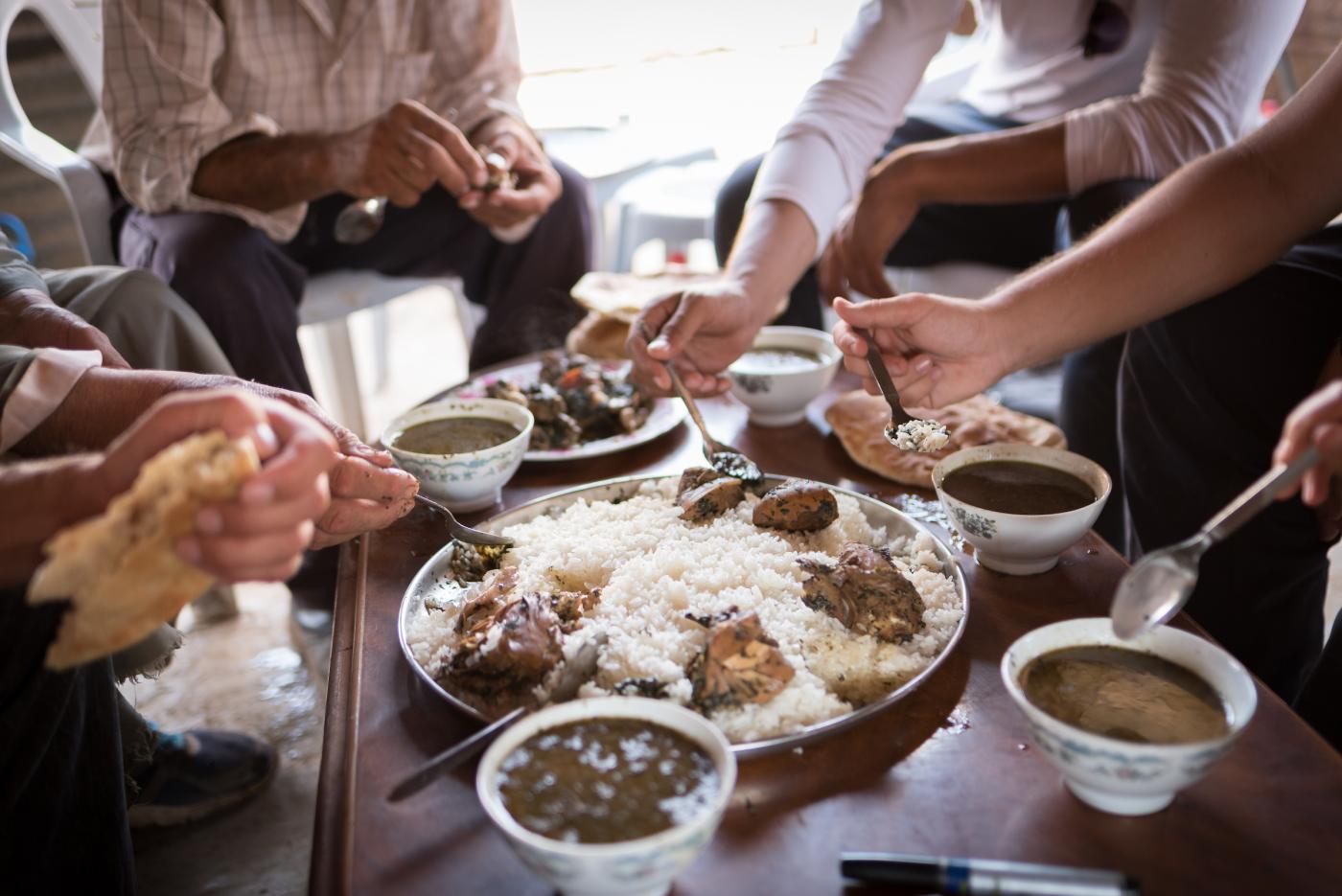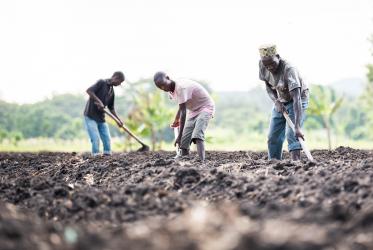Observed on 13-20 October, the World Council of Churches (WCC) Ecumenical Advocacy Alliance invites churches around the world again to a Churches’ Week of Action on Food, an opportunity to pray, reflect and take action together, for food justice across the globe.
“The Churches’ Week of Action on Food is a week-long global campaign initiated by the WCC through which we invite the global ecumenical movement and organisations, community-based organisations and faith-based organisations to act collectively for food justice,” explains Manoj Kurian, coordinator of the WCC Ecumenical Advocacy Alliance and Food for Life Campaign.
This year, the WCC partnered with the World Methodist Council to produce reflections and liturgy to help enrich and expand people’s thoughts around sharing God’s abundance.
“There are many ways to celebrate life, to give thanks for God’s abundant gifts and to expand the table to all God’s children,” writes Bishop Rosemarie Wenner in the introduction. Wenner currently serves as Geneva secretary for the World Methodist Council.
“The liturgical pieces as well as the examples and thoughts shared in the material will hopefully broaden your horizons and stimulate your imagination as we worship God through prayer, praise, meditation and action,” she adds.
The theme for World Food Day – October 16 this year - is ‘Healthy Diets For A #Zerohunger World’. God’s Promise of Abundance was chosen as a theme to observe during the Churches' Week of Action as God has provided sufficient resources and food for all.
Shocking disparity amid plenty
But we are experiencing shocking disparity and injustice. Though for decades, the world was making progress in the fight against hunger, the number of undernourished people is on the rise again. More than 820 million people, (one in nine), are going hungry. The combination of moderate and severe levels of food insecurity brings the estimated total to 26.4 percent of the world population, amounting to about 2 billion people.
A combination of unhealthy diets and sedentary lifestyles has also sent obesity rates soaring not only in developed countries, but also low-income countries, where hunger and obesity often coexist. Now over 670 million adults and 120 million girls and boys (5-19 years) are obese, and over 40 million children under five are overweight. Obesity and other forms of malnutrition affect nearly one in three people.
Rev. Judy Bors Davis, who serves with the World Methodist Council in Geneva, writes: “Our God is a God of abundance! The scriptures overflow with images that illustrate the exceeding abundance of God’s love for us, for the world, and for all of creation. But in the midst of plenty we have to reflect and act on the contradictions and inequity we face.”
Each year, the WCC makes available a range of resources Christians and others around the world to use to act together for food justice and food sovereignty, and to raise awareness about farming approaches that help individuals and communities develop resiliency and combat poverty.
“This year the WCC is making available reflections and focus questions to help us rejoice in God’s plenty,” Kurian says, “and also to focus on equity, justice and inviting our neighbor to the table.”
Download resource materials for the Churches' Week of Action on Food 2019
The State of Food Security and Nutrition in the World 2019







